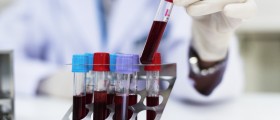
What is the Function of Thyroid Gland?
The main purpose of the thyroid gland is to regulate the body’s metabolism. If there are any issues with the thyroid gland functionality blood tests are used in order to determine the levels of hormones produced. The levels of production can be adequate, too low, or too high. Thyroid gland is located in the lower part of the neck and is wrapped around the trachea. A substance called iodine is necessary for the thyroid gland to function properly. Iodine enters the body through diet, mainly from salt, bread, and seafood. The two hormones that the thyroid gland produces are the thyroxine (T4) and triiodothyronine (T3). Although T4 is produced in much larger quantities once it enters the blood it gets converted into T3, which is the hormone directly responsible for cell metabolism.The Function of the Related Glands
Thyroid gland is regulated by the pituitary gland located in the brain. The pituitary gland is in turn managed by hypothalamus, which produces a hormone termed thyrotropin. Thyrotropin stimulates the pituitary gland to produce TSH, a hormone that stimulates the thyroid gland. Once the thyroid gland receives the signal from the TSH it starts to produce its hormones. If at any of these stages there is a setback the creation of the thyroid hormones is disrupted. The pituitary gland essentially controls the amount of the thyroid hormones that get composed. In cases in which for whatever reason the quantity of the hormones is low the pituitary gland releases more of the TSH to try and further encourage the thyroid gland. On the other hand, if the thyroid gland is producing uncontrolled amount of hormones the pituitary slows down the making of the TSH.Diagnosis of Thyroid Gland Problems
In instances in which the production of thyroid hormones is too low the symptoms usually include feeling of tiredness, constipation, dry skin, and intolerance toward anything cold. A simple blood test is usually sufficient to diagnose primary hypothyroidism. It should be noted that in the early stages of the disorder the levels of T3 and T4 hormones might be normal, and the TSH is actually the real indicator of a problem. As previously mentioned, if the thyroid gland is struggling to produce its hormones the pituitary gland increases the levels of TSH. Such an increase can come months or even years before the actual decline of the thyroid hormones, and in most cases indicates hypothyroidism. There is, nonetheless, an instance in which other underlying reasons might be behind low thyroid hormone production. Other than the thyroid gland having a problem, one of the other glands could be having difficulties that affect the T3 and T4 production. If there is a strain placed on the pituitary gland or the hypothalamus, such hypothyroidism is considered secondary or tertiary. A more complex test named TRH can determine whether the hypothyroidism is due to a defect in the thyroid or in some of the other glands. In cases of the overproduction of T3 and T4, or hyperthyroidism, the symptoms will include excessive perspiration, rapid heart rate, healthy skin, and a swollen thyroid gland. Similarly to the hormone underproduction, a blood test is needed to confirm a diagnosis. If the levels of the TSH hormone are low it is safe to conclude that the individual is affected by hyperthyroidism. Nonetheless, there is a possibility that one of the other glands is not functioning properly leading to the high levels of thyroid hormones. In addition, the blood tests only identify the state of the hormones but do not revel the cause of the imbalance. In order to distinguish between the possible sources of the problem the primary health care provider will look at the patient’s medical history as well as any other related illnesses. Additional tests, which are often employed in such instances, include the ultrasound of the thyroid gland, more blood tests, and nuclear medicine thyroid scanning. There are cases in which the abnormal hormone levels are due to thyroid cancer, when it is very likely that surgery will be required in order to remove it and restore the hormonal balance.Difficulties Associate With Blood Testing
Many experts agree that the range used to assess blood test results is biased as it only represents the average population, and not necessarily the optimal levels of a substance required for healthy functioning of organs. In cases of serious medical problems the reference ranges are often too wide to detect hidden causes of diseases or to prescribe adequate kind of therapy. One such disorder is the status of the thyroid gland. Some physicians rely mostly on the blood test results while others consider them too limited and look for other signs and symptoms of thyroid failure. There have been numerous research and clinical trials trying to establish whether the reference ranges used in thyroid gland assessment are valid and reliable.






-During-Pregnancy_f_280x120.jpg)









Your thoughts on this
Loading...